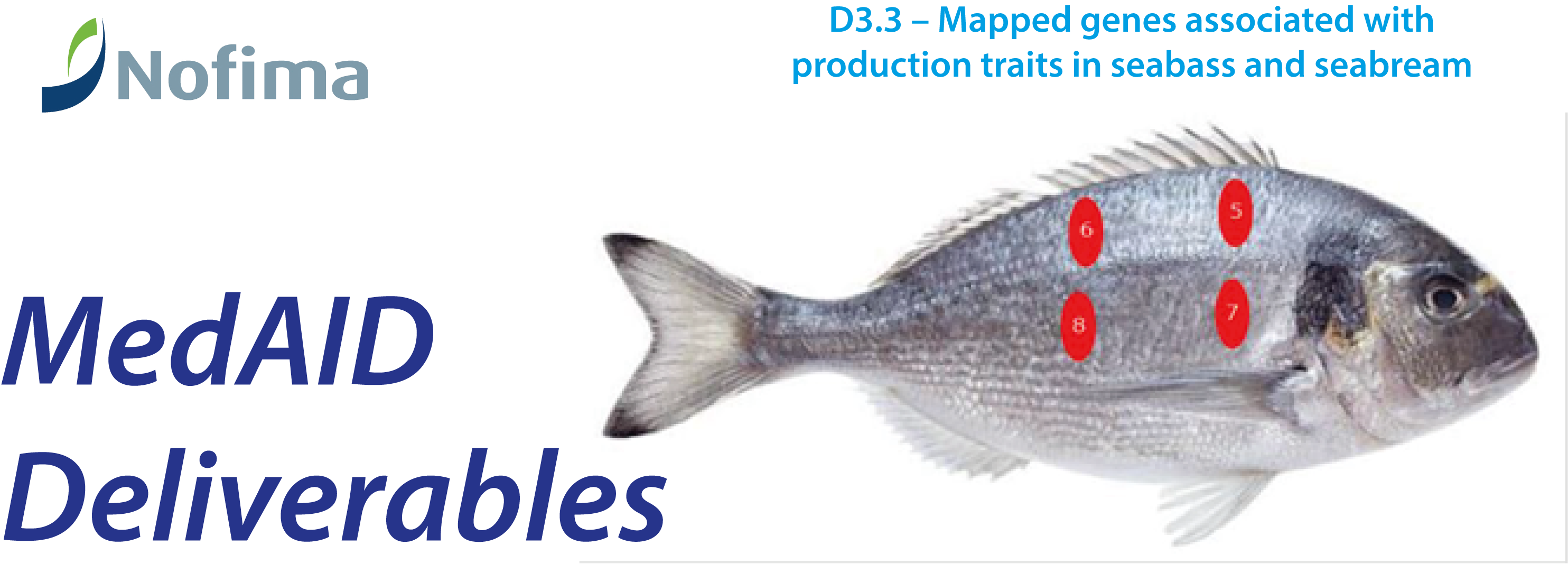Lipids are important in all animal production because they are linked to production efficiency, health and product quality. Excess dietary lipids that are not deposited in the edible muscle or used as energy source for growth are considered a loss and an indicator of low efficiency. In addition, the fatty acid profiles of the fat affect the health of both the fish and the human consumers and both European seabass and gilthead seabream are important sources of omega-3 fatty acids in the Mediterranean diet. Two important omega-3 fatty acids are eicosapentaenoic acid (EPA) and docosahexaenoic acid (DHA).
This deliverable must be read together with Deliverable 3.2. Phenotypic and genetic records (Gamsiz et al., 2020), where we presented the phenotypic analysis of the same data as presented here in both seabass and seabream. In the current deliverable we present results from the Genome Wide Association Study, which aims at identifying associations between genetic variants and traits of interest. This can provide valuable information for better understanding of the genetic basis of the traits studied and opens an opportunity to implement genomic selection in the respective breeding programmes. Focus is on lipid-related production traits, including body and muscle fat contents and fatty acid composition of muscle fat.
Continue reading










